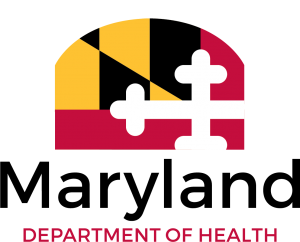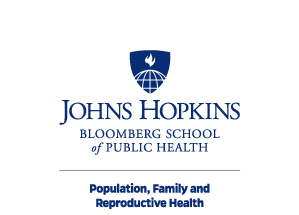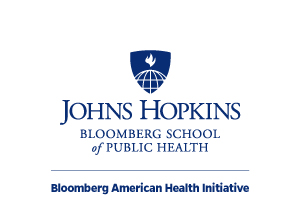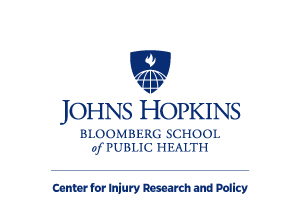Sexual Violence Prevention through Hot Spot Mapping: Creating Protective Environments on College Campuses

Researchers at the Johns Hopkins Bloomberg School of Public Health have been awarded a cooperative agreement from the Centers for Disease Control and Prevention to evaluate Rape Prevention Education (RPE) programing in concert with Maryland RPE leadership and practitioner partners at Maryland Department of Health, Maryland Coalition Against Sexual Assault and Bowie State University.
The three-year study, entitled “Creating Protective Higher Education Environments for Sexual Violence Prevention: Practice-based Evidence and Evaluation,” focuses on college campuses and includes developmental and pilot evaluation work to optimize measurement and evaluation systems, with the potential for a larger-scale trial in years four and five.
The study is led by principal investigator Michele Decker, ScD, MPH, in collaboration with Charvonne Holliday, PhD, MPH; Andrea Gielen, ScD, ScM; and Paté Mahoney, MA, of the Johns Hopkins Center for Injury Research and Policy.
The goal of this research, Evaluating Practice-based Programs, Policies, and Practices from CDC’s Rape Prevention and Education (RPE) Program: Expanding the Evidence to Prevent Sexual Violence, is to “rigorously evaluate practice-based prevention approaches to increase the evidence for sexual violence [prevention strategies] that are feasible to implement by practitioners and acceptable to communities.” The CDC RPE program provides funding to states, including Maryland, to work with stakeholders to prevent sexual violence. CDC RPR programs are increasingly looking to understand and address the social and physical environments that can give rise to sexual violence. “Hot Spot Mapping” is one such strategy; this participatory approach involves characterizing features of the physical and social environment to inform targeted safety improvements. This innovative programming harnesses social and physical environments that have often been overlooked as agents of change. As Hot Spot Mapping programming is increasingly explored through the Maryland RPE program, the research team will work closely with campus implementing partners to build the accompanying evaluation toolkit, and generate pilot evaluation results to lay the foundation for a subsequent trial.
Decker explains that the award is particularly exciting in its ability to build the evidence base in real-time. “Hot Spot Mapping is rapidly gaining popularity and has caught the attention of practitioners as a community-engaged strategy for enduring change. As innovative programming is developed, it is critical to build the evidence base on how, where, and for what types of sexual violence it can be most impactful.” She notes that the intervention approach builds on early feminist organizing strategies to change harmful urban environments. “We are thrilled to have CDC support for our interdisciplinary, academic-practitioner partnership to expand the evidence base for sexual violence prevention.”
“Our ability to contextualize social and environmental risk factors is a vital component of violence prevention,” explains Holliday, an assistant professor at the Bloomberg School. “I am optimistic that this study will lead to a more effective, nuanced approach to sexual violence prevention on college campuses,” she added.
Clifford Mitchell, MD, MPH, director of the Environmental Health Bureau at Maryland Department of Health noted, "Sexual violence prevention strategies are shifting from educational to environmental approaches in Maryland, following a national trend. This project will be valuable in informing future prevention efforts in Maryland because it will provide valuable insight on the approaches used by key partners statewide, including the Maryland Coalition Against Sexual Assault and Bowie State University."
Collaborators at Bowie State University echoed these sentiments. Isha Taylor-Kamara, Health Educator and Rita Wutoh, MD, director of the Wellness Center explained, “Partners in Peace (PIP) program is committed to working towards ending sexual violence on college campuses via new and innovative practices such a Hot Spot mapping. Our goal is to push the initiative, make it more mainstream and promote a campus environment that encourages survivors to report incidents of sexual assault and intimate partner violence without fear. Bowie State University is committed to creating the safest environment by including the students and making them and their safety our number one priority.”
Mahoney, a researcher and data analyst at the Bloomberg School and Johns Hopkins School of Nursing, highlights the role of evaluation research in identifying and promoting the most effective interventions to reduce sexual violence. “Innovative interventionists across the country continue to use the best evidence available to reduce the incidence of sexual violence on their campuses. Yet how do we know which interventions are working? How can we understand the mechanisms by which successful interventions are working, so they can be adapted to other settings?” She continued, “We are very pleased to have the support of the CDC in partnering with practitioners on the front lines of campus programming to advance our understanding of social and environmental solutions to sexual violence prevention.”
“MCASA is committed to ending sexual assault in Maryland, and are pleased to move forward with this partnership on campuses across the state”, says Lisae C. Jordan, Esq., executive director of the Maryland Coalition Against Sexual Assault. “By using hotspot mapping approaches, we have the opportunity to reduce the number of college students who experience sexual violence and contribute to best practices in the field.”
Gielen adds, “This wonderful opportunity builds on our injury control research center’s long history of collaborating with the Maryland Department of Health on injury and violence prevention initiatives, and we are thrilled to be part of this team. Our work will provide new knowledge about what can work to reduce sexual assault on college campuses, which continues to be a challenging and complex problem.”






